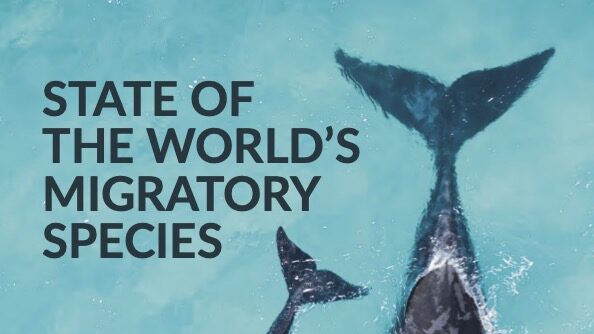A wake-up call from the UN: Conservation status of many migratory species is deteriorating, says major report released today
The Convention on the Conservation of Migratory Species of Wild Animals (CMS), a UN biodiversity treaty, today released the first-ever ‘State of the World’s Migratory Species’ report. The report summarises the status and trends of migratory species and identifies the main pressures they face.
Nicolas Entrup, Director of International Relations at OceanCare, said:
“OceanCare welcomes this ground-breaking CMS report. We are alarmed by the abundant evidence that the conservation status of many species listed by the Convention as threatened or in need of international conservation efforts continues to deteriorate.
“We see this report as a wake-up call for governments to take urgent action, including to reduce the impact of abandoned, lost, and otherwise discarded fishing gear, and to address ship strikes as a growing problem of concern for cetaceans and whale sharks.
“According to the report, the main threats to marine species are incidental capture in fishing nets, overfishing and pollution – such as the devastation caused by oil spills. Another major form of pollution is underwater noise. OceanCare is proud to have been actively involved in the development of the CMS Family Guidelines on Environmental Impact Assessment for Marine Noise-generating Activities, a tool that the report highlights as particularly useful.
“OceanCare sees this report as strong evidence that the Convention on Migratory Species provides an effective global platform for international cooperation to tackle the global biodiversity crisis. It allows for the active engagement of governments, communities and all other stakeholders that is essential to address the myriad of challenges facing migratory species. As a recognised partner organisation, we will continue to contribute to the Convention’s work on issues such as underwater noise, plastic and other debris, marine mammal conservation and aquatic wild meat to better protect aquatic migratory species.”
ENDS
Media contact
- Dániel Fehér, Strategic Communications Lead OceanCare: +49 176 62001877; dfeher@oceancare.org
